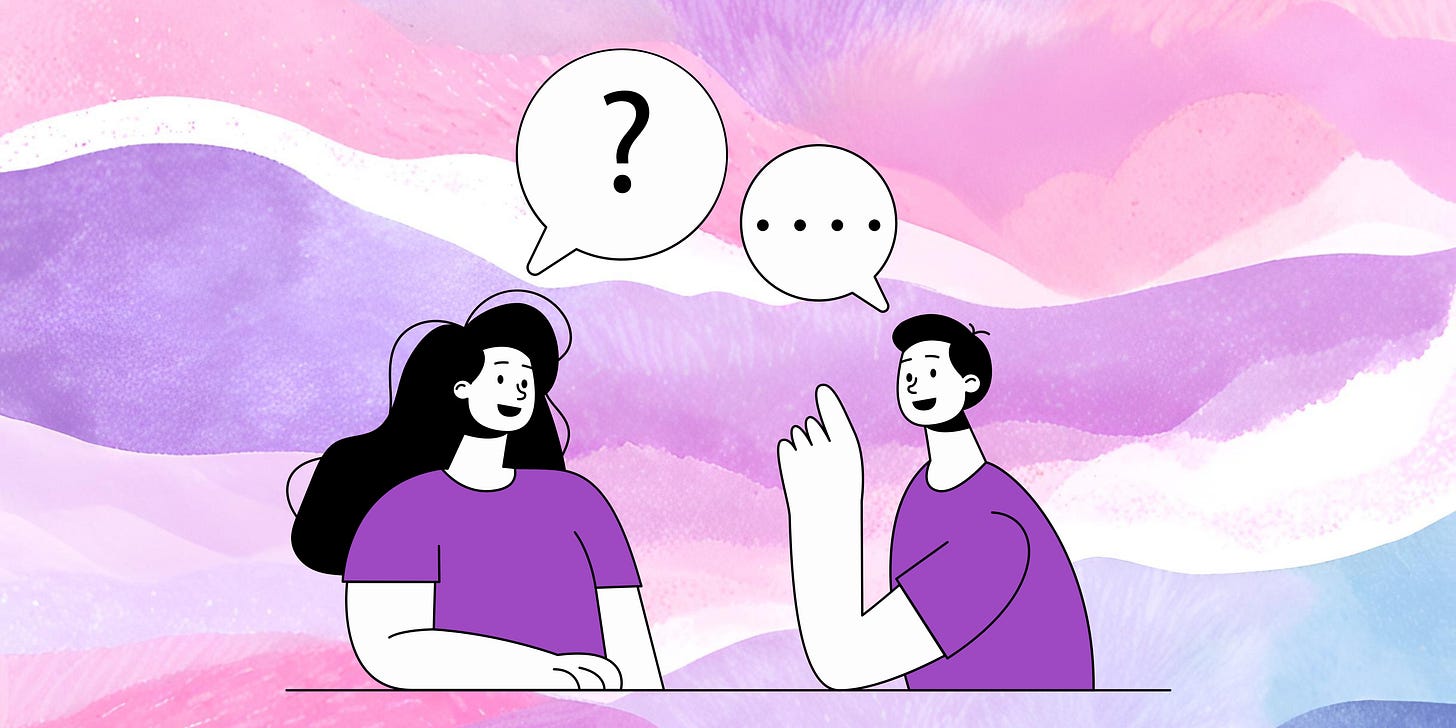Give It To Me Bi: Lost in Translation
At this point, we're professional bisexuals. Give It To Me Bi+ is a bi-weekly advice column in your favorite Bisexual Killjoys answer all your questions about being bi+.
Q.
Dear Bailey & Jace,
I’m a bisexual trans man, but I often tell folks I’m gay. I’m into men who like men - both romantically and sexually. I am attracted to women romantically, but not very attracted to them sexually (if at all). As a polyamorous person, that does change in slightly larger group romantic settings. Having a woman as a partner in a triad or quad is both romantically and sexually attractive to me, but joining a pre-established opposite-gender couple is an absolute no from me.
Is it disingenuous if I tell folks I’m gay just to make my life easier? Should I reevaluate how I explain the complicated relationship between my gender and sexuality? Am I just weird, or is it too complicated to begin with? And is it wrong that I know exactly the kind of dynamic/groups I want in my life?
Sincerely,
Lost in Translation
A.
Dear Lost in Translation,
First, let me say that the human experience is complex and multifaceted. We’re on a journey of constantly re-discovering and re-inventing ourselves. So much of how we navigate the world will change as time passes and life leaves its imprint on us - it’s part of a life well-lived. The words we use to describe ourselves, which ones we drop and pick up throughout our life, serve as a kind of documentation or evidence of nuanced change and transformation.
Before asking yourself whether or not to use “gay” to describe your attraction, perhaps we can approach the reasons behind its use with gentle curiosity. Is your choice to describe yourself as gay done as a way to maximize ease of communication? Is it about safety? Is it about protection? How does it feel in your body when others describe you as such? When you describe yourself?
How you understand yourself and communicate that to others is shaped by tons of small, seemingly unimportant factors and variables. How people have described you in the past, the way you wish to be perceived, that one form you had to fill out, and the boxes kept haunting you for weeks…
I could explain all these factors to you with academic language and theory, but it boils down to this: how we identify, and the words we use to describe ourselves, are always changing, malleable, and subject to both interpretation and environment. What matters most is how you feel about the descriptors you use, and having the knowledge that these descriptors (and the feelings that come with them) will likely change with time.
That’s why we’re so insistent on embracing the liminal space we occupy as Bi+ people.
So, no, you’re not complicated. And the relationship you have with yourself, your gender, and/or sexuality is not complicated either. It’s multifaceted, nuanced, and fluid. It’s human.
And perhaps it might be slightly disingenuous to use a label or identity that isn’t fully yours - but the only person who can tell for certain is you. Approach this process with gentle curiosity for what you might find, without judgment for the reasons you may have chosen to describe yourself in that way.
As for the polycule situation - I think it makes total sense that you’re very clear on what you’re searching for romantically and sexually. (I mean, nobody says it’s weird when “knowing what you want” means getting married, having kids, and a white-picket fence.)
If anything, being very clear on who you are, what you’re searching for, and being openly honest about it with potential partners will only reveal the ways in which you are most (in)compatible. At the end of the day, all relationships hinge on honesty and understanding, with constant communication. I strongly encourage you to describe yourself and your wants in detail to potential partners; that’s the best way to gauge compatibility and find out if you’re really into one another. Relationships are a lot less about the labels you use and much more about what those labels mean to you and your partners.
As long as everyone is a consenting adult and happy, then it’s all fair game in our book!
Embracing the liminality,
Jace
Was there something that resonated with you about this post?
Have question or situation you could use advice on?
Share your story with us to be featured in a future Give It to Me Bi+ entry!



